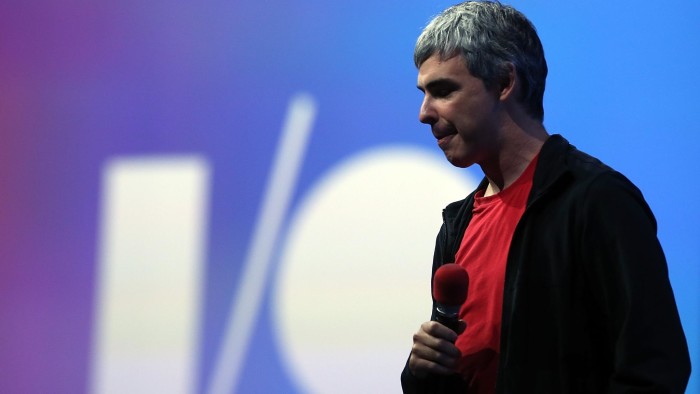Google bows to EU privacy ruling

Simply sign up to the US & Canadian companies myFT Digest -- delivered directly to your inbox.
A landmark “right to be forgotten” ruling against Google in Europe risks damaging the next generation of internet start-ups and strengthening the hand of repressive governments looking to restrict online communications, Larry Page, the search company’s chief executive officer, has warned.
Mr Page’s comments, in an interview with the Financial Times, came as Google bowed to this month’s European Court of Justice decision, introducing a mechanism that could lead to large amounts of private information being stripped from the widely used search service.
An online form, available from Friday, will give anyone in Europe an easy way to ask the US company to censor links to other internet sites that they think contain outdated and damaging information about them.
The company hopes to strike a balance between blocking damaging private information about ordinary Europeans while preserving links to things in the public interest, such as articles about corrupt public officials.
In a mark of its new stance on Europe, the search company also plans on Friday to announce a committee largely made up of outside experts to hold hearings in Europe and advise it on how to deal with its new privacy responsibilities.
The move echoes steps taken by other US companies that have come under intense pressure over international social issues in the past, such as Nike’s reaction to criticism of its use of foreign sweatshops and Apple’s over monitoring its labour practices in China.
Headed by Eric Schmidt, Google’s chairman, and David Drummond, general counsel, members of the committee will include Jimmy Wales, head of Wikipedia, along with academics and former data regulators from a number of European countries.
This month’s ECJ ruling amounted to the biggest privacy setback for an American internet company in Europe and exposed a widening transatlantic rift over personal data. It came as Google is struggling against a growing backlash in countries such as Germany and France, from the fallout over the Snowden revelations of US internet surveillance to a backlash over a proposed settlement of its an antitrust case in Brussels.
Mr Page conceded that the US company had been caught out by the ruling and promised a new level of engagement in Europe over privacy issues. “I wish we’d been more involved in a real debate . . . in Europe,” he said. “That’s one of the things we’ve taken from this, that we’re starting the process of really going and talking to people.”
Mr Page’s comments amount to a significant change of tone for a company that has previously taken a strong stance in defence of its principles of full information transparency, leading it into a series of legal battles in European courtrooms over privacy and copyright issues.
“We’re trying now to be more European and think about it maybe more from a European context,” the Google chief executive said of the new approach. “A very significant amount of time is going to be spent in Europe talking.”
However, he argued that the continent’s new online privacy regime will make it hard for internet start-ups, which face a significant new layer of regulatory complexity. That could have hurt Google when it was still at the stage of “three people in a garage,” he added.
“We’re a big company and we can respond to these kind of concerns and spend money on them and deal with them, it’s not a problem for us,” he said. “But as a whole, as we regulate the internet, I think we’re not going to see the kind of innovation we’ve seen.”
Mr Page also claimed that the ruling would give encouragement to repressive regimes elsewhere around the world that are looking to increase online censorship: “It will be used by other governments that aren’t as forward and progressive as Europe to do bad things. Other people are going to pile on, probably . . . for reasons most Europeans would find negative.”
Comments